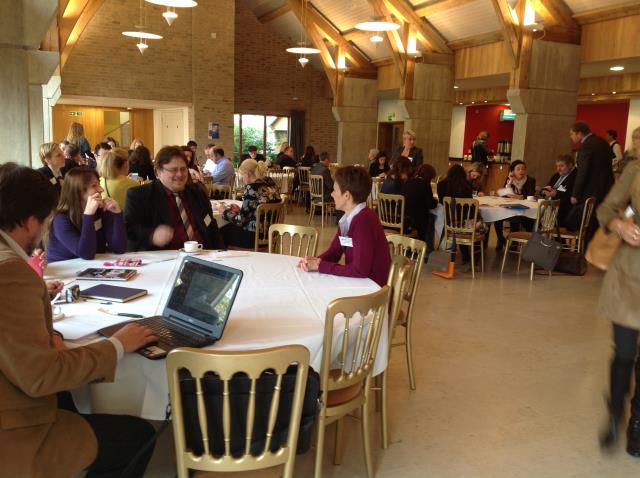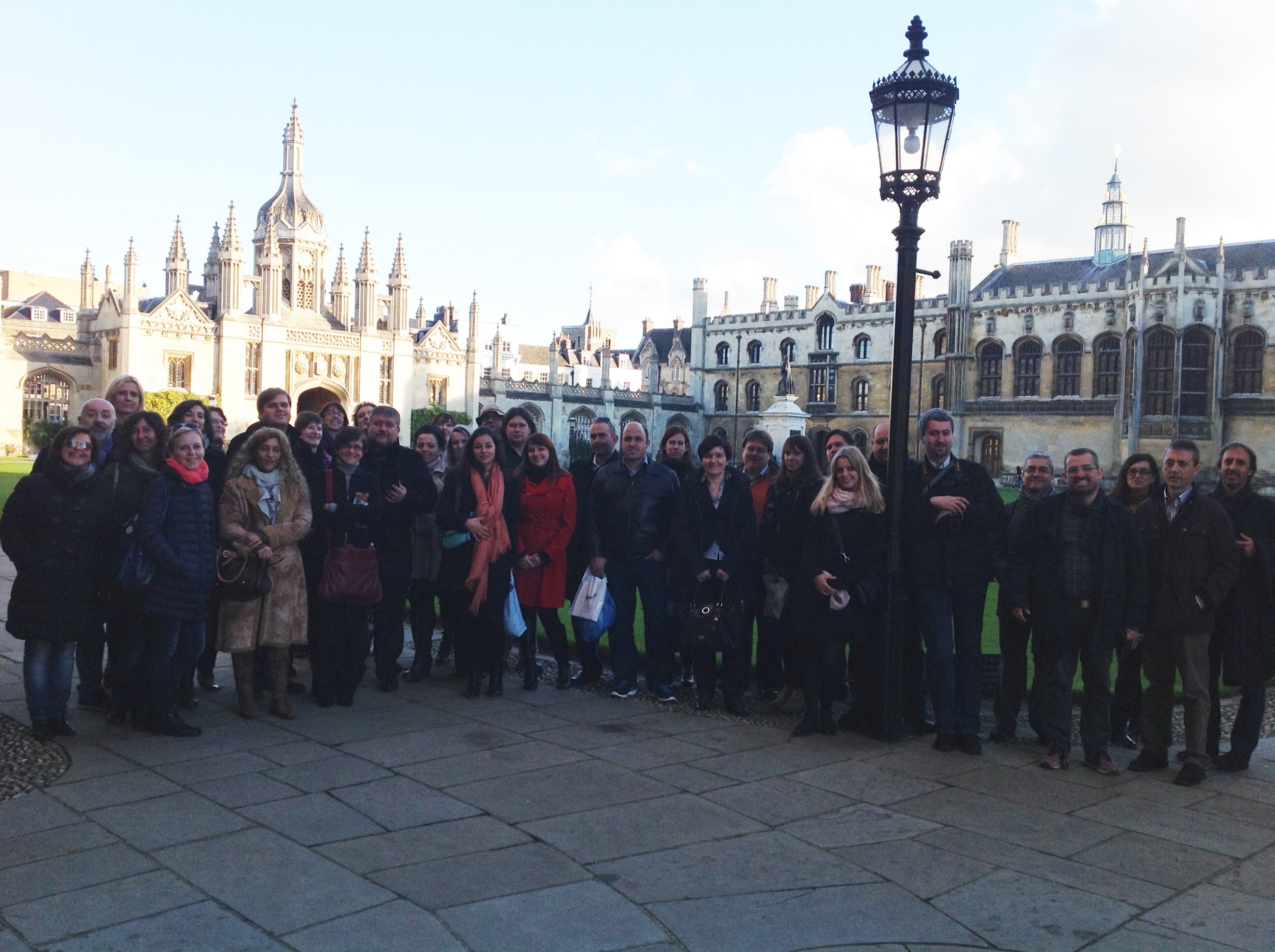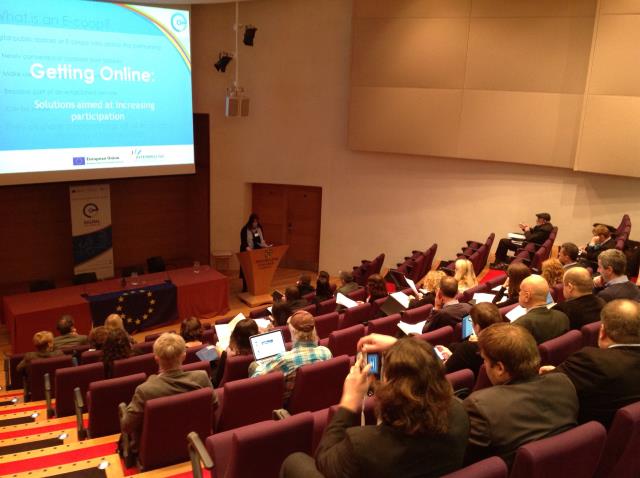European citizens do not participate equally in the Information society: in fact, the digital gap is moving down from infrastructures to uses. Based on this observation, local authorities in Europe have developed Digital Public Spaces (DPS) promoting e-inclusion.
The final ECOOP conference was held in Cambridge in November with the aim to disseminate the results of the three year project. With an audience of around 80 people the project partners presented the results of the transnational work that had been taking place and which has now been published in the ECOOP Policy Guide.

The main findings and recommendations were presented, focussed around three key themes:
- Getting citizens to participate in a digital world
- Going digital – the e-cooperative model
- Co-production of services
In the morning the results of the three working groups, published in the Policy Guide, were presented. The work group leaders each presented the key findings of their groups and took part in an Expert Panel question and answer session.
The E-COOP partnership also showcased innovative ways of addressing the digital divide by presenting partners’ best practices in seminars which made up the afternoon sessions. These seminars highlighted work done on engaging citizens, tackling digital inclusion and explaining the role of digital public spaces. In the seminars the audience engaged in discussions around issues, successes and approaches taken in different EU countries.

Part of the work of the E-COOP project has been the transfer of one good practice from one partner to another. In the afternoon presentations were given on the micro-implementation experience in Poland which explained how they set up their own E-COOP working with seniors and students in a joint initiative and the results of that pilot.
Three partners have also developed platforms to engage their citizens in digital services. The E-COOP platforms gave an insight into online citizen participation and how different approaches in different countries worked.
Finally there was a presentation from Graham Nolan from Sanctuary Housing highlighting the importance of digital inclusion to their customers and showcasing Cambridgeshire’s experience of digital inclusion in a sheltered housing scheme.
The key benefits of working transnationally to enhance local and regional policies sparked conversations with the audience members and the conference ended with representatives from Gironde County Council talking about the future of public policies in the field of digital cooperation at partners’ level. –
Rebecca Morgan, said ‘The E-COOP conference has given us a chance to show how we have worked together as a partnership and shared new approaches to digital inclusion within communities across Europe.’

Video Interview on the final conference with Lead Partner and Cambridgeshire Partner - http://www.ecoopproject.eu/news/e-coop-interview-on-the-final-conference



